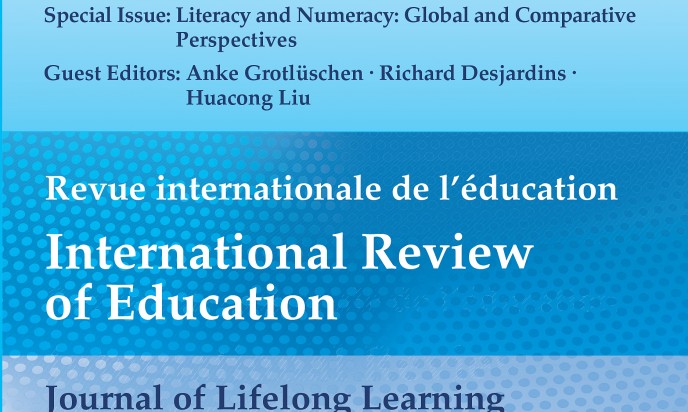

Just Published: IRE double special issue on literacy and numeracy
ire_specialissueaugust2020.jpg

The new issue of the International Review of Education – Journal of Lifelong Learning aims to contribute to international discourse on literacy, numeracy, adult education and basic education. It brings together leading scholars in the field, engaging with numeracy and mathematical literacy, New Literacy Studies, adult education, and lifelong learning in the context of the United Nations Sustainable Development Goals (SDGs), both from theoretical perspectives and from an empirical viewpoint.
This special issue was guest-edited by Richard Desjardins (Professor of Education and Political Economy at the University of California, Los Angeles), Anke Grotlüschen (Professor of Lifelong Learning at the University of Hamburg) and Huacong Liu (Research Associate jointly engaged at the University of Hamburg and the UNESCO Institute for Lifelong Learning).
The first part of this special issue contains two articles that critique the monitoring and measurement of adult literacy and numeracy, complemented by three articles that discuss methodological advancements. The second part presents five articles that relate to findings from qualitative and quantitative literacy and numeracy research, and reveal key insights and nuances relevant to the measurement and monitoring of literacy and numeracy.
The contributing authors reflect on the complexity of literacy and numeracy assessments, focus on the need to contextualize literacy and numeracy practices, and demonstrate what can be gained by analysing existing data generated through large-scale skills assessments over the past 30 years. They offer critical considerations regarding the monitoring and measuring of literacy and numeracy, and focus on learners typically excluded in policy debate around literacy and numeracy improvement.
Between them, these 10 articles cover a rich and sometimes controversial array of approaches, avoiding easy answers, while instead offering a critical discourse that matches the aims of the SDGs.


